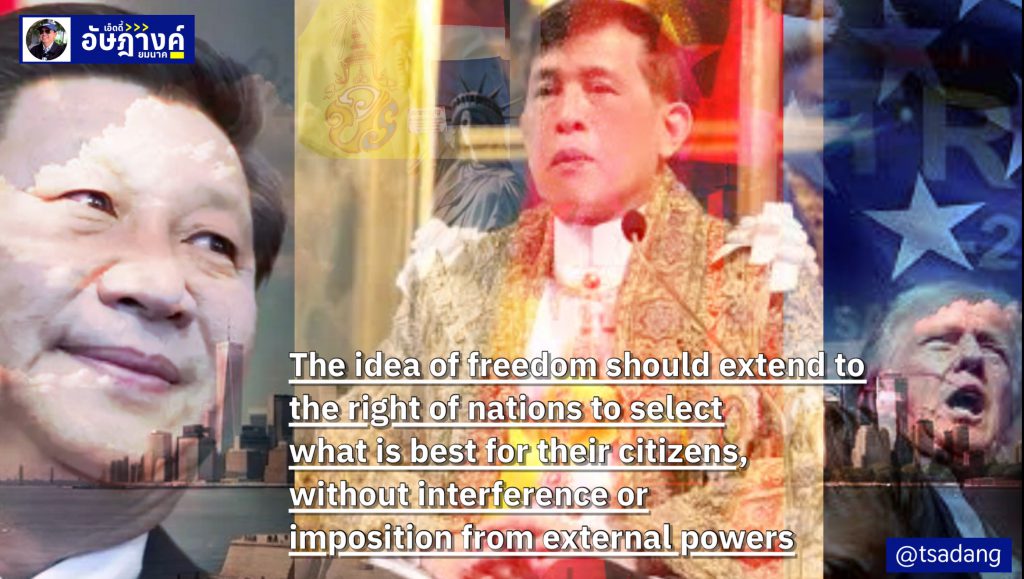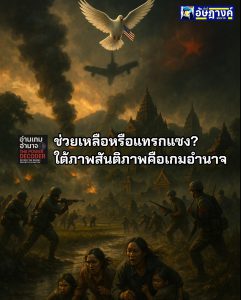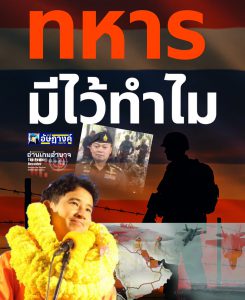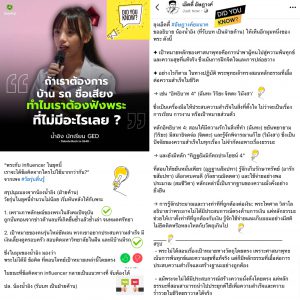
By Eddie Atsadang
Freedom, Democracy, and the World Order: Whose Choice Is It Really?
The United States has long presented itself as the “beacon of freedom” and a champion of democracy, promoting these ideals in various regions of the world. This self-proclaimed role has shaped international politics for decades, with the U.S. actively exporting its vision of freedom and democracy to other nations. Yet, this raises a fundamental question: what do freedom and democracy truly mean if nations like Thailand, China, or any other sovereign state are denied the freedom to choose what is best for their own people? Is it freedom if it must align with the preferences of the United States, or is it simply conformity to an imposed global order?
Freedom and Democracy Defined
In essence, democracy is the right of a nation’s people to participate in choosing their government and determining their future through political, economic, and social decisions. Freedom, on the other hand, encompasses the autonomy to make choices without external coercion or domination. These principles are celebrated as universal values, yet their application in the global arena often appears selective and contradictory.
While the U.S. advocates for these ideals, the practice of enforcing “freedom” and “democracy” on other nations raises ethical concerns. How free is a country if its autonomy to choose a governance system or economic model that suits its unique cultural and historical context is curtailed by external pressure? Is democracy a universal principle, or has it become a tool of geopolitical strategy?
Freedom to Choose: A Sovereign Right?
Thailand, China, and other countries face a paradox. On one hand, they are sovereign nations with the inherent right to determine their political and economic systems. On the other hand, they are expected to conform to a “world order” heavily influenced, if not dictated, by the United States and its Western allies.
If the U.S. truly upholds freedom and democracy, why can’t these nations exercise their freedom to adopt systems that work for their unique circumstances? For instance:
•China has lifted over 800 million people out of poverty through a state-controlled economic model that diverges from Western liberalism. Shouldn’t this success validate their right to choose?
•Thailand and other developing countries often seek political systems that balance stability, cultural heritage, and modern governance. Why must they be judged or pressured for choosing paths that deviate from Western norms?
The idea of freedom should extend to the right of nations to select what is best for their citizens, without interference or imposition from external powers. Yet, the reality of global politics often denies this basic principle, with the U.S. leveraging economic sanctions, diplomatic isolation, or even military intervention to enforce its preferred model of governance.
The Contradiction of the Global Order
The current “world order,” designed to maintain global peace and prosperity, is largely defined by Western powers, particularly the United States. While its proponents argue that this order ensures stability and progress, it frequently demands adherence to rules crafted in the interests of a select few, rather than the global majority.
This creates a profound contradiction:
•On one side, the U.S. claims to support democracy and freedom.
•On the other, it enforces systems and policies that often undermine the sovereignty of nations, denying them the freedom to choose.
If Thailand, China, or any other nation attempts to exercise its right to self-determination in ways that diverge from Western preferences, they are often labeled as “undemocratic” or “threats to global stability.” This double standard undermines the very principles of freedom and democracy that the U.S. purports to champion.
Freedom or Conformity?
If nations are not allowed to choose their political, economic, and governance systems without external interference, then the concept of “freedom” becomes hollow. True freedom means allowing nations to explore and adopt what works best for their unique circumstances, even if it challenges the norms established by powerful countries.
The ultimate question, then, is: What is the true meaning of the U.S.’s “freedom” and “democracy”?
If these ideals are merely tools for maintaining a global order dictated by the U.S. and its allies, then they are not principles of liberty but instruments of control. Freedom, in its genuine sense, must include the right to disagree, the right to be different, and the right to choose independently.
Conclusion
Freedom and democracy, when defined as the right to self-determination and autonomy, should empower nations to make choices that best suit their citizens. However, the current global order often denies this right, imposing a uniformity dictated by the United States and Western powers. If the U.S. truly seeks to be the “beacon of freedom,” it must respect the sovereignty of all nations to determine their paths, even if those paths diverge from the Western model.
True freedom is not about conformity to another’s vision but about the right to create one’s own. Only when this principle is universally respected can the ideals of democracy and liberty have real meaning.



